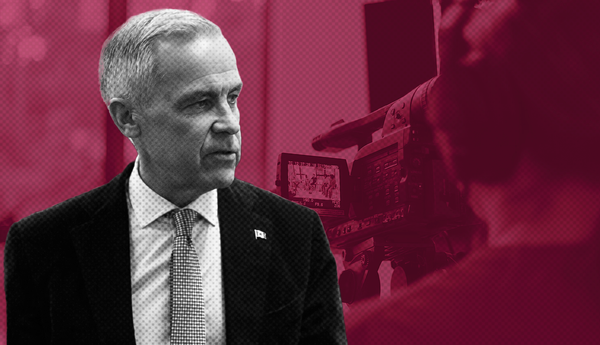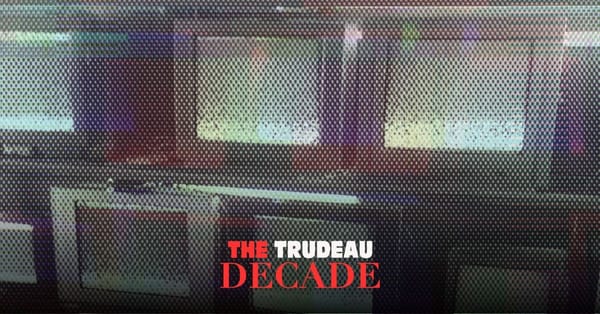On Monday, former CBC employee Tara Henley published a Substack post explaining why she resigned from her position as a TV and radio producer at the network. Despite my better judgement, I’m going to write about the reaction to it, mainly because the early-January malaise is preventing me from coming up with any better ideas.
If you have yet to read it, here’s a brief summary of Henley’s short post:
- She thinks the CBC “produced some of the best journalism in the country” when she started there in 2013, and now embodies “some of the worst trends in mainstream media.” (Not exactly a ringing endorsement of her time at the network.)
- She believes she was the “furthest to the left in any newsroom” when she joined the network, but is now “easily the most conservative, frequently sparking tension by questioning identity politics,” despite her political views supposedly not shifting.
- She argues that identity politics, which she brands part of a “radical political agenda that originated on Ivy League campuses,” have taken over the network and led to a chill on the sort of debate and discussion necessary for hard-hitting journalism.
- She announces that her Substack, which will consist of one book essay, author interview and news roundup a week, is being launched to help answer questions such as, “How could good journalism possibly be done under such conditions?” and, “How could any of this possibly be healthy for society?”
If I’d read this post in a bubble, unaware of anyone else’s reaction to it, my only response would have been to yawn and move on. Agree with Henley’s post or not, there’s genuinely nothing new in it, as reactions from others who have written similar resignation letters in the past, such as Bari Weiss and Jonathan Kay, made clear. (Although, compared to Weiss, or even Kay, Henley had a much smaller public profile before the move — about 3,500 Twitter followers pre-Substack announcement compared to nearly 16,000 now — making her departure even less consequential.)
My reaction to the piece apparently would have been in the minority though, given that Henley’s tweet of the post sparked a massive response from critics and supporters alike — as of Thursday morning, it had more than 4,600 retweets, 1,200 quote tweets, 15,700 likes and 1,500 replies. And this response is a bit more interesting than the post itself.
There’s an unfortunate tendency among leftists to react to right-wing critiques of liberal institutions by defending them, as opposed to elucidating an alternate vision of their flaws (a favour liberals never return). This was on full display in the reaction to Henley’s post. (While Henley denies being on the right, they were the most enthusiastic force behind her newsletter’s spread.)
Henley writes that the CBC’s coverage has become generally “less adversarial to government and corporations,” and on the following issues at least is subpar: evictions, wages, working conditions, the drug toxicity crisis, billionaires amassing an increasing share of wealth, etc.
Plenty of people have reacted to the post by claiming Henley doesn’t really care about the things she mentions, often pointing to her bylines as proof. Setting aside the fact that a TV and radio producer’s work probably can’t best be summarized by articles they’ve written, and that an examination of the actual work of some of the most vocal social justice-oriented journalists on Twitter would yield the same result, we’ll assume they’re right. Maybe Henley is pulling a well-trodden Tucker Carlson-style move, thoroughly investigated and critiqued by Citations Needed in a two-part episode, the first of which is titled, “The GOP’s ‘Populism’ Rebrand […] How Well-Funded Charlatans Pick Off Disillusioned Lefties.”
Still, can anyone who considers themselves to be genuinely on the left really dispute that mainstream media coverage of the issues Henley highlights needs improvement, at the very least? Knee-jerk reactions to defend the CBC, or even avoid engaging with criticism of it, are a disservice to readers, viewers, and listeners across the country who do, and should, expect better from a news source with such a massive budget relative to other outlets.
Getting better from the CBC requires demanding more of it, and organizing campaigns to put pressure on it to achieve said goals. Giving the CBC undue praise, even if to defend it from right-wing critiques, does a disservice to the campaign. It merely protects the status quo from a potentially worse outcome at best, whereas a leftist critique offers a better one.
Leftists shouldn’t allow right-wing populists to have a monopoly on concern with coverage of the issues Henley purports to care about, even if just rhetorically. But instead of seeking to claim ownership of these critiques, much of the backlash to Henley’s post has focused on the wrong parts of it.
For example, some deny the shift in content she talks about — in terms of the network dedicating more resources to stories generally motivated by “identity politics” — has taken place. And yet, many of these people were the ones who advocated for, and celebrated, more of that sort of content being published in the first place.
These figures may also note that racialized people have continued to be pushed out of the CBC, or prevented from attaining a prominent position at the network in the first place, which is absolutely true. And yet, rather than this claim leading to needed introspection on how the equity, diversity and inclusion movement has been co-opted, with little benefit to racialized people, they attempt to deny that it has shaped ongoing coverage in some form.
A better critique wouldn’t defend the CBC, but it also wouldn’t portray an increase in identity-driven journalism as the reason for its lacklustre systemic coverage of many issues, as Henley’s post seems to do. Instead, it would point to how mismanagement, cuts to news budgets, a shift away from focusing on local news and other factors are responsible, and are what need to be addressed. There’s absolutely room at the CBC for both “non-binary Filipinos concerned about a lack of LGBT terms in Tagalog” (the example Henley gives), and in-depth reporting on the housing crisis. (Also, the idea that a non-binary Filipino would have no interest in coverage of the housing crisis, for example, is bizarre.)
A better critique of the CBC wouldn’t deny the anecdotal rise in identity-driven content by saying other social issues that impact racialized groups — such as Canadian military ventures and support of Israel — are taboo to discuss. Instead, it would point out how the two trends are part of a coherent liberal response to quell social pressure from marginalized groups, and achieving the first hasn’t necessarily led to change on the second.
Moreover, a better critique of the CBC might dispute Henley’s suggestion that its coverage in 2013 was great, and is now poor — not because it’s great now, but because it never was. Of course, Henley needs to suggest her narrative is the case, because then the decline in quality can be attributed to the rise of first-person identity journalism. Leftists don’t need to, however, and shouldn’t, because the decline, or lack of quality in the first place, is due to a range of other issues.
Like many broadly liberal things — and yes, promoting identity politics while shutting out criticism of Israeli apartheid, for example, is absolutely consistent with liberalism — both right-wing and left-wing critiques of it exist. They aren’t equally valid, and come with different motivations. Yet the response to the right-wing ones shouldn’t be to defend the centre, but rather express the leftist vision.
Right-wing critiques of the CBC that blame coverage focusing on racialized groups for its flaws are wrong, and should be condemned. But this must not come in the form of defending CBC. Instead, it should be through the articulation of a left-wing vision for the network that can claim it as a space to truly serve public interest.







